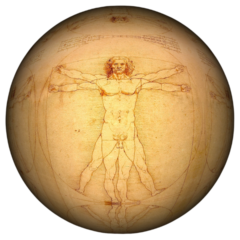The Teutonic Knights were a medieval German military order founded in the late 12th century during the Crusades. Initially, their mission was to provide medical care and protection for Christian pilgrims traveling to the Holy Land. However, they later became a powerful military force and expanded their influence to Eastern Europe, where they conquered and Christianized pagan lands.
Continue reading “Who were the Teutonic Knights?”Tag: #documentary
Ptahhotep Teachings Super Facts
Ptahhotep, an ancient Egyptian vizier, wrote one of the oldest books, a book of maxims, around 2400 BCE. The maxims offer advice on how to live a successful and virtuous life, covering topics such as respect for authority, proper behavior, and the importance of education.
Continue reading “Ptahhotep Teachings Super Facts”Outnumbered Sikhs in battles with Mughals. Bravery and Pride
A very important chapter in military history is the history of the Sikh Empire and the Khalsa army.
Continue reading “Outnumbered Sikhs in battles with Mughals. Bravery and Pride”How were the ancient maps created in the absence of measuring instruments? #Shorts #minidocumentary
The creation of the first maps without the use of modern measuring instruments was a remarkable feat of human ingenuity. Ancient civilizations such as the Greeks, Egyptians, and Babylonians used a variety of techniques to map their territories.
Continue reading “How were the ancient maps created in the absence of measuring instruments? #Shorts #minidocumentary”Who was Senenmut, Hatshepsut’s chief Steward?
Senenmut, a prominent figure in ancient Egyptian history, served as the chief advisor to Queen Hatshepsut, one of the few female pharaohs who ruled over Egypt during the New Kingdom period. Senenmut’s unparalleled rise to power as an advisor to the queen is a testament to his intelligence, strategic acumen, and unwavering loyalty.
Continue reading “Who was Senenmut, Hatshepsut’s chief Steward?”Maharana Pratap and battle of Haldighati Quick Facts
The Battle of Haldighati, fought on June 18, 1576, was a pivotal moment in Indian history, as Maharana Pratap of Mewar, a Rajput warrior king, valiantly defended his kingdom against the Mughal Empire’s forces led by Akbar’s general, Man Singh I.
Continue reading “Maharana Pratap and battle of Haldighati Quick Facts”Can we ever master time travel?
The concept of time travel has fascinated humans for centuries, but can we ever master it? While the idea of traveling through time is exciting, it comes with both pros and cons.
Continue reading “Can we ever master time travel?”Who were the Samurai? Amazing short Facts
Who were the Samurai? Amazing short Facts #Shorts #minidocumentary The samurai were skilled and revered warriors who emerged in feudal Japan during the 9th century.
Continue reading “Who were the Samurai? Amazing short Facts”Imhotep, the first polymath. Guide for everyone
Imhotep was an ancient Egyptian polymath, architect, physician, and high-ranking official who lived during the 27th century BCE. He served as the chancellor and advisor to Pharaoh Djoser of the Third Dynasty and is considered one of the most renowned figures of ancient Egypt.
Continue reading “Imhotep, the first polymath. Guide for everyone”How Nurbanu Sultan became Haseki Sultan and Valide Sultan
Nurbanu Sultan was a powerful queen consort of the Ottoman Empire during the 16th century. She was the wife of Selim II and the mother of Murad III. Despite her lowly origins as a slave, she rose to become a prominent figure in Ottoman politics and society. She was considered to be either Venetian, Jewish or Greek, but neither is generally accepted, names attributed to her include Cecilia Venier-Baffo, Rachel or Kalē Kartanou.
Nurbanu Sultan was known for her intelligence and political acumen. She acted as an advisor to her husband and was instrumental in securing the succession of her son to the throne. She was also a patron of the arts and a builder of charitable institutions. Sultana Nurbanu became the first woman to hold both the rank of Haseki and Valide. She became very influential and was involved in state matters.
Her reign was not without controversy but
Nurbanu Sultan’s legacy remains a powerful and influential figure in Ottoman history. Her leadership and patronage of the arts helped shape the empire during a critical period of its development.
She was buried next to Selim II in his mausoleum in the courtyard of Hagia Sophia, thus becoming the first wife of a sultan who received the honor of being buried next to her husband.
https://dosaresecrete.ro/sultana-nurbanu-o-poveste-din-sultanatul-femeilor/,

